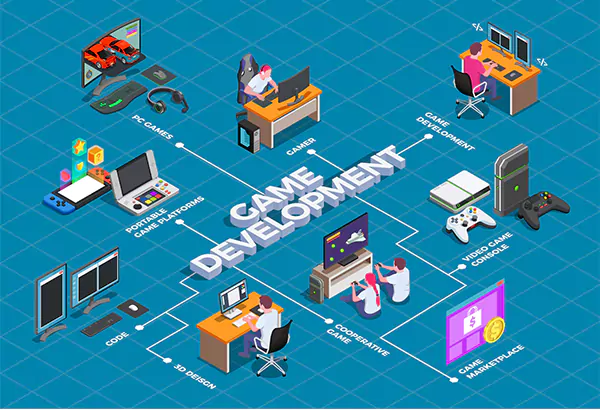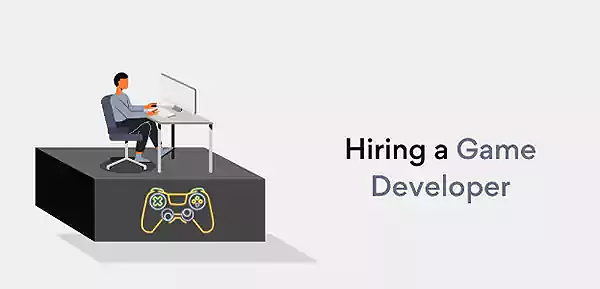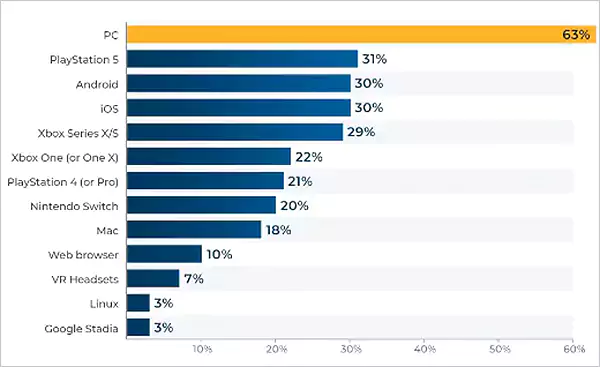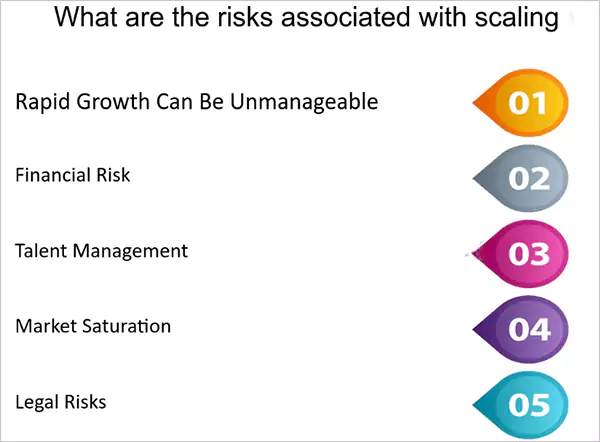Scaling Your Gaming Business: When to Hire More Game Developers
Jump To Key Section

COVID-19 ignited a period of growth in several industries and amongst many, one, the gaming industry has been witnessing an unprecedented surge till now and, hence, is emerging as a dominant force in the entertainment industry.
Since this industry has flourished in the season of home orders, lockdowns, and social distancing, it has a globally connected audience. Indeed, its expansion seems relentless.
For gaming businesses, this growth presents both opportunities and challenges.
Game development companies that achieved success with some of their titles are now stressing over scaling and considering the need to hire game developers to add to their teams or bring new expertise in-house.
Although, scaling is the natural development step for any company, but still, it can present its struggles.
In this article, we explain how GameDev companies can scale efficiently and hassle-free.
The Current Landscape of Your Gaming Business
Every gaming business operates at a unique stage in its journey, whether you are a budding startup breaking into the market, a mid-level company poised for further growth, or a well-established entity with a recognized footprint.
The evolution of this industry has been driven by a few factors like a jump in internet penetration, affordable smartphones, and a young or tech-savvy population.
Your current state shapes strategies, goals, and potential avenues for expansion. However, merely recognizing this position isn’t enough. A thorough self-evaluation, delving into inherent strengths and acknowledging weaknesses, is paramount.
This introspection offers clarity, steering businesses toward informed decisions and sustainable growth in a competitive market.
Recognizing the Signs That You Need to Scale
To your knowledge, growth indicators are not about one or two signals they often come in nuanced forms. Just like a surge in workload (like constant overtime and accumulating backlogs) shows that scaling is needed. Similarly, embarking into untapped markets via game launches or targeting uncharted demographics, demands expansion.
Technological shifts, such as the adoption of exceptional game engines or platforms, highlight the demand for fresh talent having modern skills and resources. On top of that, an undeniable cue emerges when players vocally yearn for enhanced game features or sequels.
Lastly, in a case when your in-house talent underscores a gap in skill sets or workforce size, it’s a wake-up reminding you to upgrade your development arsenal of skills.
How Much Does it Cost to Hire a Game Developer?
The rates to hire a game developer are based on hours. Here is the 2025 rate list of developers of each stage collected from different platforms:
| Designation | Minimal Rate | Maximal Rate | Average Rate |
| Junior Unity Developer | $32 | $32 | $32 |
| Middle Unity Developer | $35 | $58 | $38 |
| Senior Unity Developer | $30 | $87 | $47 |
| Junior VR Developer | $32 | $32 | $32 |
| Middle VR Developer | $38 | $58 | $46 |
| Senior VR Developer | $45 | $58 | $51 |
| Junior C++ Developer | $30 | $50 | $34 |
| Middle C++ Developer | $30 | $77 | $43 |
| Senior C++ Developer | $45 | $240 | $55 |
Benefits of Hiring More Game Developers

Expanding your team of game developers carries multifaceted advantages. Firstly, new applicants contribute new and completely novel ideas to the workplace. They are blessed with access to new ideas, which helps them discover and come up with pristine concepts.
When there are numerous hands on deck, game projects expedite. Indeed, enduring quicker launches and faster market penetration. Yet another benefit is that an enlarged team alleviates work pressure, fosters a balanced professional environment, and mitigates burnout.
In addition, you can experience reduced time-to-market for companies. How? When a dedicated team of experts works on their projects in hand, companies are liable to expect faster turnaround times. Ultimately, this enables them to launch their games faster and establish a distinct advantage in the market.
Moreover, diversifying hires means accessing specialized skills; be it the immersive realms of AR and VR or the intelligent dynamics of AI in gaming. A bigger team translates to broader horizons and enhanced potential.
The below graph represents the division of top gaming platforms for game developers.

How to Determine the Right Time to Hire
The identification of the optimal hiring opportunity depends on a blend of analytics and intuition. A comprehensive financial analysis that weighs the hiring costs in contrast to expected revenue growth, yields a tangible metric.
Besides, when you have successfully completed the pre-production phase and have a clear vision of the game project, this is the right time to write a job description and hire the right talent.
At the same time, you need to familiarize yourselves with the game development lifecycle, particularly certain stages, like pre-launch or post-launch support, which might necessitate additional manpower.
Moreover, keeping a finger on the industry’s pulse through market research is invaluable.
Risks of Scaling Too Quickly

The fact that scaling is one of the vital aspects of growth, that often comes with its set of challenges, especially when rushed. One of the most immediate consequences is financial strain.
Yes, you heard it right. Expanding too rapidly can lead to budget overextensions that might make businesses vulnerable to economic downturns.
Then there’s the complexity of onboarding. Integrating a large influx of new team members in a short span can dilute training quality, potentially affecting game development consistency and standards. It can drain the manager’s training resources.
A hurried hiring process may bypass cultural fit assessments. This oversight can result in new hires who may not align with the company’s core values, ethos, or the strategic direction of game development.
Such misalignments not only impact team cohesion but can also diverge the game’s trajectory from its envisioned path.
Tips for a Successful Hiring Process
Getting ready to go on a hiring spree? Here are some noteworthy guidelines for you to ensure a hassle-free as well as highly effective process. First and foremost, clarity is king. Certainly, clearly defined roles, out-and-out with straightforward job descriptions and expectations or prerequisites eliminate ambiguities as well as attract the right talent.
On that note, gauging the cultural fit is equally vital. Except for technical prowess, new hires should be in tune with the company’s ethos and values. This ensures a harmonious work environment, you must agree?
Once on board, investing in ongoing training and development is non-negotiable.
This not only sharpens their skill set but also fosters loyalty and commitment. Lastly, cultivate a culture of open communication.
Regular check-ins, constructive feedback loops, and an open-door policy make new hires feel valued and heard, facilitating their integration and alignment with the company’s objectives.
Do You Know?
According to statistics only 50% of the time a hiring process is considered successful.
Summing Up
In the dynamic world of gaming, timing is everything. Scaling too swiftly or too slowly can jeopardize a company’s trajectory. As businesses evolve, the emphasis should always be on maintaining impeccable quality, both in products and in team dynamics.
Expanding the team shouldn’t mean diluting the essence of what makes a company unique. Instead, each new hire should bolster the company’s mission, fostering even greater unity and cohesion.
Gaming businesses, big or small, must remember: it’s not just about growing bigger, but about growing better, with an unwavering commitment to excellence and unity at the forefront.








